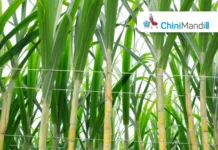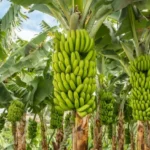Nigeria spends more than $10 billion every year importing food items including sugar, wheat, rice, fish, and tomato paste, while agricultural exports earn the country less than $400 million, Minister of Agriculture and Food Security Senator Abubakar Kyari said on Tuesday, reports The Guardian.
Speaking at the First Bank of Nigeria Ltd. 2025 Agric and Export Expo in Lagos, Kyari — represented by his Special Adviser, Ibrahim Alkali — said agriculture accounts for 35% of Nigeria’s Gross Domestic Product (GDP) and employs 35% of the workforce, yet contributes less than 0.5% to global exports.
“Despite our potential, Nigeria spends heavily on food imports while agro-exports remain very low. If we want a strong non-oil export economy, we must rethink how agriculture is financed,” Kyari said.
The minister highlighted that Nigeria has more than 85 million hectares of arable land and a youthful population, with over 70% under the age of 30, but these strengths are not translating into global competitiveness.
He stressed the need to move away from subsistence farming and fragmented credit schemes toward structured financial systems that can attract major investment and boost agribusiness.
“We have the land, the labour, and the markets. What we lack is a financing system, value addition, and infrastructure to turn our potential into prosperity. Strengthening local food production and building export capacity must go hand in hand,” he said.
Kyari reaffirmed President Bola Tinubu’s policy on achieving food sovereignty, saying the administration’s priority is for Nigeria to feed itself without depending on imports.
“Food sovereignty means no Nigerian should go hungry because of global supply shocks. Every community should be able to rely on its land, its people, and its productivity,” the minister said.
He also called for innovative financing models such as forward contracts, “Pay-as-Harvest” schemes, revenue-sharing arrangements, and performance-based agricultural goals to improve food security.
Kyari warned that without tackling challenges in financing, value addition, and infrastructure, Nigeria will remain dependent on imports despite its vast agricultural capacity.

















